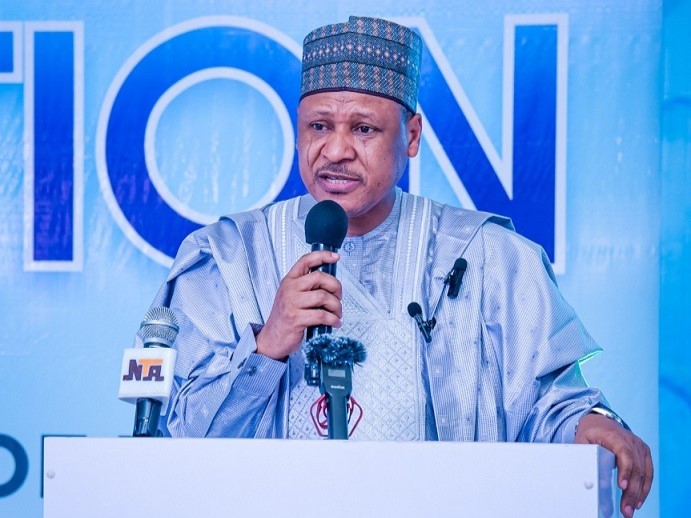The 2024 Appropriation Bill of N27.5 trillion submitted to the National Assembly demonstrates President Bola Tinubu’s commitment to fiscal responsibility.
The Minister of Information and National Orientation, Alhaji Mohammed Idris, disclosed this on Saturday at the 2023 Public Lecture and Annual General Meeting of the Kaduna State Chapter of the Nigerian Institute of Public Relations (NIPR) with the theme, “Demographic transition, ethical resources, and sustainable development: Reflection on Northern Nigeria”.
The minister said Tinubu is a transformational leader with a solid track record in the private sector and at the level of subnational government, and a man who will not be fazed by challenges and obstacles, because he is a man that is more than equal to the task.
“Just this week, he presented the 2024 Appropriation Bill of N27.5 trillion to the National Assembly, the first full-year budget of his administration.
“The budget as presented, signifies a pivotal step towards the realisation of his Renewed Hope Agenda, by aligning fiscal strategies and priorities with broader national development objectives.
“In addition to its focus on development priorities, the budget demonstrates Tinubu’s commitment to fiscal responsibility with all sense of sincerity, transparency and accountability.
“President Tinubu’s administration recognizes the importance of prudent financial management as the foundation for long-term economic stability.
“As the 2024 appropriation bill moves through the legislative process, we are very optimistic that its passage will mark the beginning of a transformative era, bringing tangible improvements to the lives of Nigerians.
“Before the budget presentation, President Tinubu had assented to an equally important Supplementary Budget, signed some landmark bills and Executive Orders into law, and inaugurated initiatives on fiscal policy reform,” he said.
Alhaji Idris said the goal has been to deliver relief to the Nigerian people, and lay the groundwork for true and lasting prosperity.
On the theme of the public lecture, the minister said the concept of demographic transition is a very important one for Nigeria, considering the place it occupies as Africa’s most populous country.
He said by the year 2050, Nigeria will be the third most populous country in the world, after India and China, and ahead of the United States.
“On top of this, we are a very young population, with a median age of 19. What this means is that half of the population of our country is younger than 20.
“We owe these teeming young people a great deal, starting with ensuring that they are educated for the world of the 21st century. Indeed, with our population, we are at a crossroads.
“The choice is now up to us, as leaders, as elites, regarding what direction Nigeria will proceed in.
“Today’s young people, if properly educated and catered for, will be tomorrow’s engaged and productive labour force.
“Demographics are not only about age; gender is another important element. Nigeria’s population is roughly split evenly between men and women.
“One of the pillars of President Bola Tinubu’s Eight-Point Agenda is inclusivity, which means inclusive policies and programmes for all segments of the population, especially youth and women.
“You can see manifestations of this, even in the array of appointments made by the president so far, and the prominence given to young people and to women,” the minister said.









